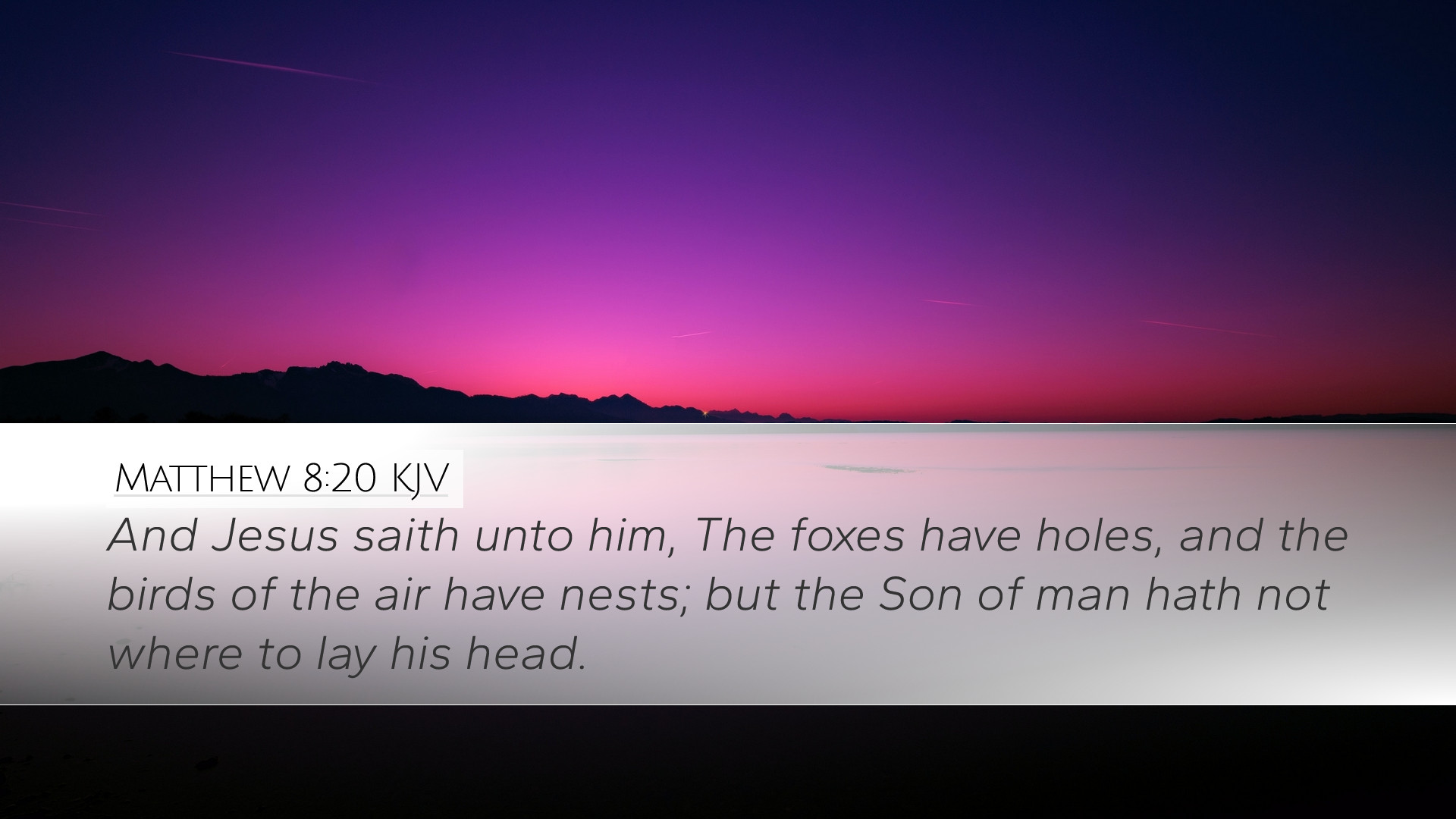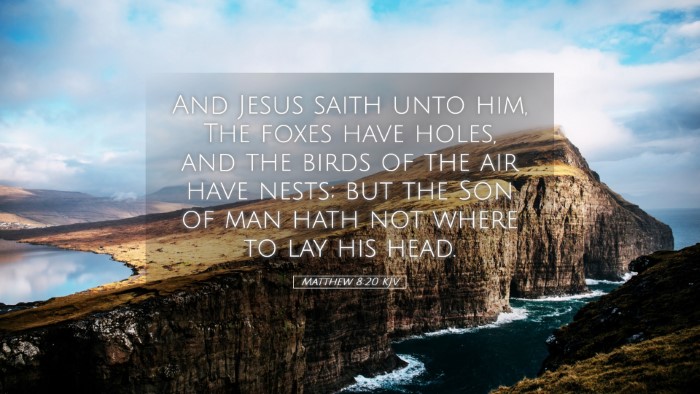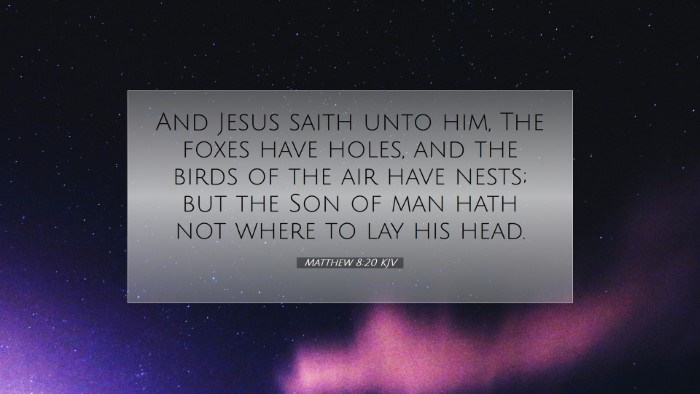Commentary on Matthew 8:20
Bible Verse: "And Jesus saith unto him, The foxes have holes, and the birds of the air have nests; but the Son of man hath not where to lay his head." (Matthew 8:20 KJV)
Introduction
This verse is a profound statement made by Jesus in response to a scribe who wished to follow Him. In this declaration, Jesus highlights the cost of discipleship and the reality of His earthly ministry. He juxtaposes the comfort of animals with the lack of comforts in His own life, which holds significant implications for His followers.
Contextual Analysis
Matthew 8:20 is embedded in a larger narrative where Jesus is demonstrating His authority over sickness, nature, and the spiritual realm. This context underscores the costs associated with discipleship and the radical nature of following Christ, which requires relinquishing earthly securities.
Insights from Matthew Henry
Cost of Discipleship: Matthew Henry emphasizes that Jesus’ statement reveals the sacrifices that come with true discipleship. He notes that while the natural world has its comforts, the call of Jesus does not guarantee worldly security or ease. This challenges potential followers to weigh their desire for comfort against their commitment to Christ.
A Call to Trust: Henry highlights that Christ’s lack of a physical home serves as a call for believers to place their ultimate trust not in material possessions but in God’s provision. Followers are encouraged to embrace a lifestyle of reliance upon God rather than the transient comforts of this world.
Insights from Albert Barnes
Understanding Jesus' Conditions: Albert Barnes clarifies that Jesus is not rejecting the idea of a home or safety but is pointing out the nature of His mission and life. Barnes explains that the reference to 'foxes' and 'birds' illustrates a stark contrast: even creatures of this world have shelter, while the Messiah does not, highlighting His humility and the covenant nature of His existence.
Discipleship and Sacrifice: Barnes notes that this verse serves as a reminder that being a disciple of Christ often involves a departure from worldly comforts. True followers may find themselves in positions of vulnerability and challenge, mirroring the life Jesus led on Earth.
Insights from Adam Clarke
Contrast Between Jesus and Creation: Adam Clarke elaborates on the notion that Jesus is emphasizing His unique mission on Earth. He notes that God’s creation has provisions, but Christ’s sacrificial path leads Him to be without such comforts. Clarke points out that Jesus’ journey is a fulfillment of the divine purpose, which prioritizes spiritual over material wealth.
The Importance of Following Without Conditions: Clarke highlights the importance of understanding discipleship as a call to follow Jesus unconditionally. By defining His own lack of temporal security, Jesus invites His followers to consider their readiness to embrace a similar path, should they decide to follow Him.
Theological Implications
This verse encapsulates critical theological themes, including:
- The Incarnation: Jesus, while fully divine, embraced human limitations and vulnerably lived among His creation.
- Identity of Christ: Matthew 8:20 speaks to the nature of Christ as the Son of Man, emphasizing His humility and identifying with human struggles.
- Discipleship: The implications for discipleship are profound, calling believers to a life of self-denial and radical trust in God.
Practical Applications
For modern believers, Matthew 8:20 serves as a personal challenge. It encourages reflection on several key areas:
- Materialism: Christians are called to examine their attachments to material comfort and security in light of their faith.
- Commitment to Christ: Followers of Jesus are invited to embrace the idea that true discipleship may require forsaking earthly comforts and identities to authentically follow Him.
- Living Faithfully in a Secular World: This verse encourages believers to navigate their lives within a secular framework, recognizing that following Christ may lead to discomfort but ultimately fulfills God's purposes.
Conclusion
In Matthew 8:20, Jesus articulates a profound truth regarding the nature of His ministry and the expectations for those who would follow Him. Through the insights gathered from prominent public domain commentaries, we see that true discipleship often involves significant sacrifice. Jesus’ words invite us to embrace a posture of reliance on God and a willingness to forsake worldly securities for the sake of the Kingdom. As we reflect upon this verse, may we be stirred towards deeper faith and deeper commitment to following Christ in all aspects of our lives.


